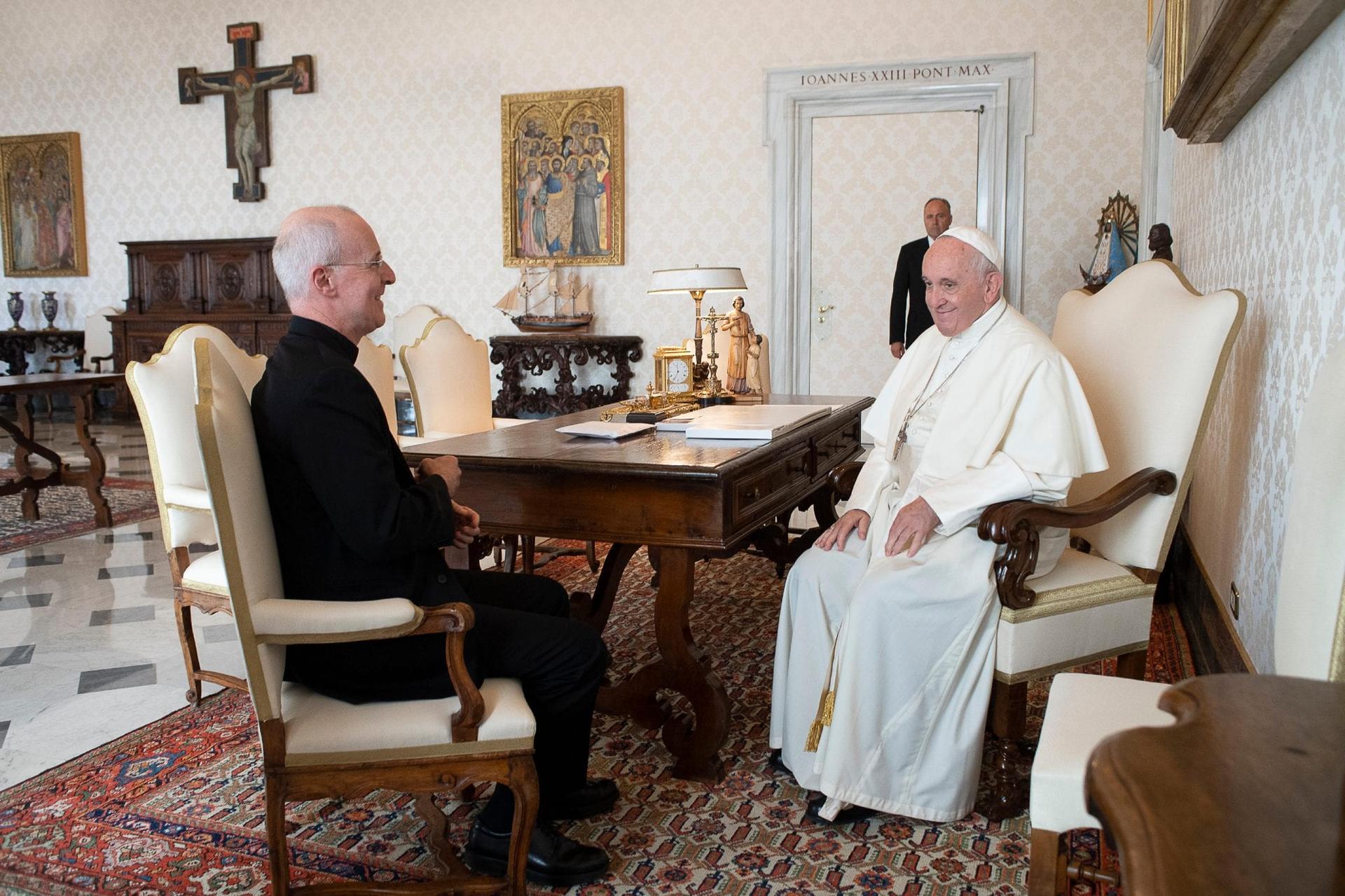NEW YORK — Jesuit Father James Martin is arguably America’s most well-known priest. In recent years, he’s made headlines for his outreach to the LGBT community, but his ministry dates back several decades to when he first introduced thousands of readers to holy men and women in his book My Life with the Saints.
In his new book, James Martin, S.J.: In the Company of Jesus, religion scholar Jon Sweeney explores why Martin has become one of the country’s most in demand, and for some, divisive priests.
Crux spoke with Sweeney ahead of the book’s launch in New York next month.
Crux: Father Martin is often billed as America’s most famous priest. In working on this book, what’s the one thing you learned about him that surprised you most?
Sweeney: Before starting my research, I knew Jim fairly well. I had written articles for him for years, when he was culture editor at America. We’d had lunch or dinner a few times in New York. We’d met in his office on several occasions to discuss projects and personal matters. I liked him. I even remember him helping me once, sort of “on the fly,” standing in a hotel lobby in Anaheim, when I needed some serious spiritual direction. But I did not realize the scope of his experiences and knowledge, until I began digging into the materials of his life. He has seen some things, and done a great deal. I was impressed by that. And he’s only 60 —turning 60 this year; there’ll be the need for another edition of this biography, surely, a decade from now.
Speaking of his celebrity status in Catholic circles, what’s your own takeaway as to why his ministry has become so well known?
I think that Jim shares a quality with Thomas Merton, one of his heroes: he’s an idealist who wants to do God’s will. I’ve learned from experience with other famous Catholic writers and leaders in the Church that, ironically, this upsets some religious people. With his genuine idealism, Jim is willing to step in front of the cameras, when he’s called to do so, and when he does, he’s really skilled at it, and does well. This also upsets people. Jim is also willing and anxious to speak out for the marginalized, even if it means he will be accused of things. But he knows he is faithful. A real man of prayer and spiritual direction, Jim knows where he stands. That also bothers people. For these reasons I think he sets on fire the hair of some people, but then he is adored by many, many more.
He’s also divisive — as we’ve seen with his ministry to LGBT Catholics. How did you deal with such controversies in your research in the book itself?
I followed Jim around a bit, both in person (I write from one such experience, at LA Congress 2019, in the last chapter of the book), and online, which is quite easy to do. I watched hundreds of videos posted by Jim’s friends and enemies. I also interviewed lots of people. I tried to tell the whole story of the controversial quality in Jim, and about his work (which I’m clearly a fan of, as the reader will see) in trying to bridge the gap between LGBT people and the Catholic Church.
What do you want his critics to take away from the book?
I want them to see Jim as a person. Too often, they see only what they think is his agenda. I want them to see the person. Frankly, I want all of us, on either or every side of issues that divide us in the Church, to see each other as people. We don’t do that well!
Lastly, on a personal level, what’s been your favorite book he’s penned?
I love My Life with the Saints. It is such a warm blend of memoir and teaching — the very best sort of book that a priest can write. That’s a big part of Jim’s gift: his honesty in writing about himself and his struggles, in ways that people can understand. The idealism and the honesty show. The reader can sense it. And that’s unusual for priestly writers.
Follow Christopher White on Twitter: @cwwhite212
Crux is dedicated to smart, wired and independent reporting on the Vatican and worldwide Catholic Church. That kind of reporting doesn’t come cheap, and we need your support. You can help Crux by giving a small amount monthly, or with a onetime gift. Please remember, Crux is a for-profit organization, so contributions are not tax-deductible.
















